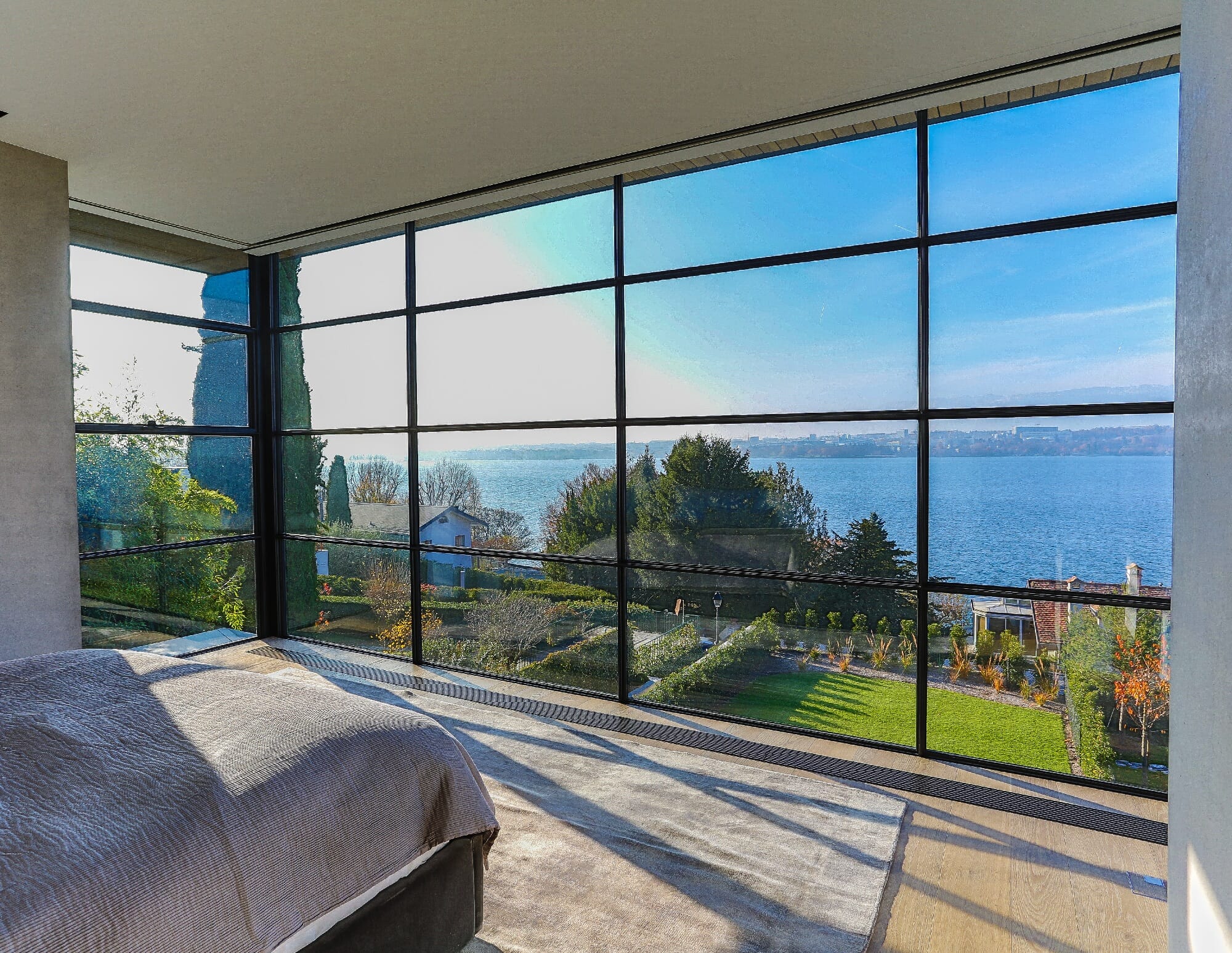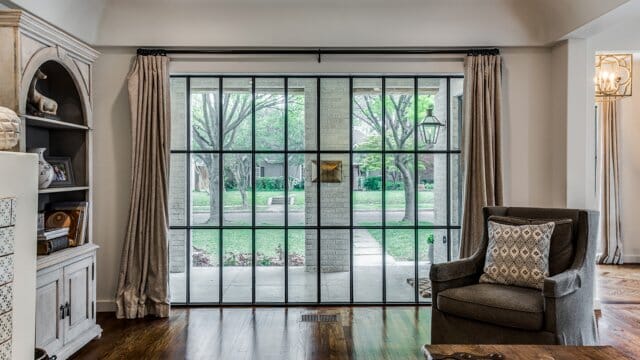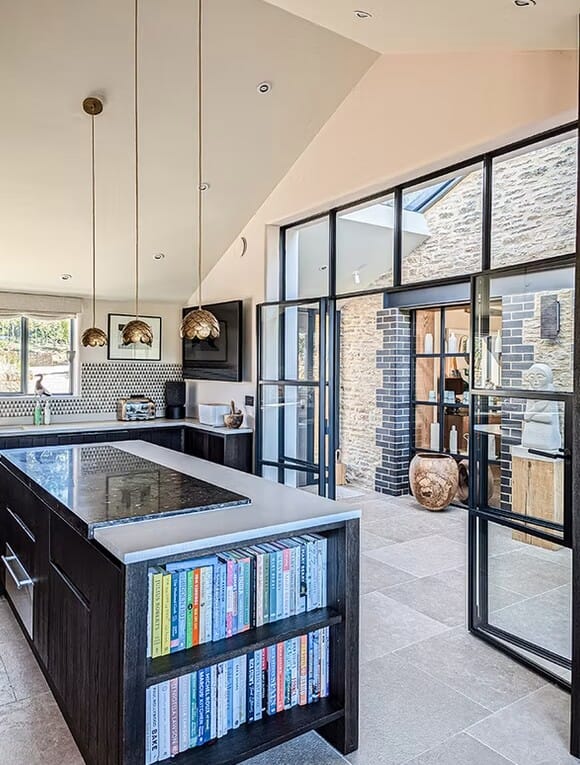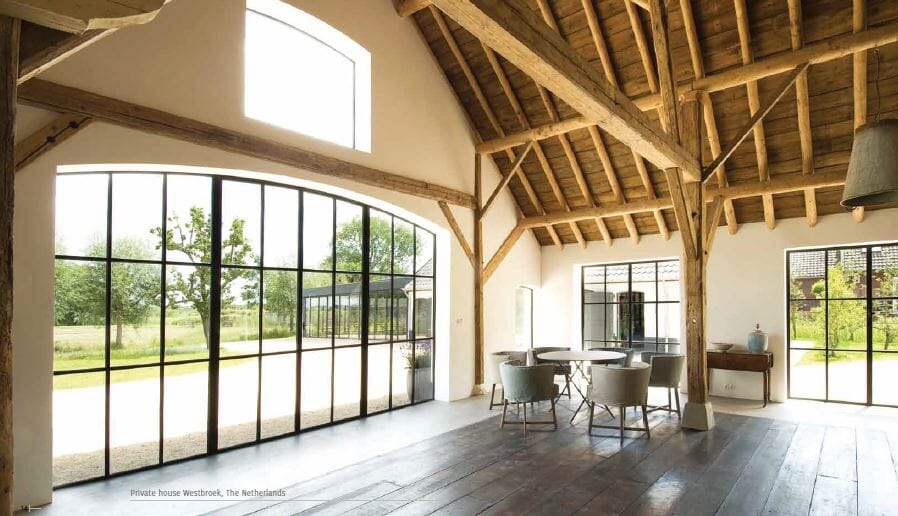
Aluminium vs Steel Windows: Which is Right for Your Project?
The pros and cons of aluminium versus steel frames...

Steel windows or aluminium? It’s one of the most important decisions you’ll make for your glazing project. Both materials have clear strengths and limitations, and the right choice depends on your priorities for style, performance, compliance, and budget.
For homeowners wanting to achieve an industrial look, you can’t beat MHB Steel’s handcrafted, thermally broken solid steel window frames for compliance, comfort and longevity. However, there is also folded steel to consider and also aluminium frames that can resemble the look and feel of steel. For more advice and inspiration, take a look at our blog on the Best Industrial Style Windows and Doors
This guide gets straight to the point: the pros and cons of solid steel windows versus aluminium windows, helping you make the right choice from the very start.
Choosing the right type of steel windows
An important factor to note when considering steel frames is that not all steel windows are created equal – and if you don’t choose correctly, it can cause major problems later in a project.
Modern steel systems for compliance
Some heritage-style steel systems, usually rolled steel that’s still made much the same way they were 100 years ago, may look beautiful but won’t meet modern insulation requirements. Unless the property is listed or in a conservation area, these non-compliant systems risk being rejected by building control – sometimes after they’ve been installed – leaving owners facing costly replacements. It’s important to make sure the steel frames you choose are thermally broken and Part L compliant, such as those by MHB Steel windows and doors.
Solid steel or folded steel frames?
Solid steel frames remain the benchmark for strength, durability and design flexibility. They deliver the ultra-slim sightlines architects and homeowners aspire to, while meeting modern performance standards. The drawback for some projects, however, can be cost.
Folded sheet steel provides a more affordable alternative, but this comes with compromises. Because folded steel lacks the inherent strength of solid steel, profiles must be made larger to achieve the necessary rigidity – often comparable in size to aluminium frames. As a result, design options are more restricted, and the elegant minimalism associated with solid steel systems is harder to achieve.

Steel vs aluminium: the key differences
Aesthetics and profile sizes
Solid steel windows, such as those by MHB Steel, offer extremely slim profiles – often just 30mm – without compromising on strength. Folded steel frames and aluminium frames both need thicker profiles to achieve the same structural stability, especially for larger openings. This difference is most noticeable in multi-panel glazing or tall doors, where solid steel can support panes of up to 3.2m high by 1.3m wide without a transom, while aluminium and folded steel typically requires chunky joiners or additional supports.
Strength and durability
Steel is inherently stronger than aluminium but it also comes down to how the frames are manufactured. Solid steel windows are welded rather than mechanically joined, creating a frame that resists distortion over time. Aluminium windows – and folded steel frames – rely on mitred corners joined with mechanical cleats, which can introduce weak points.
Thermal performance and compliance
When it comes to meeting today’s strict energy efficiency standards, not all steel systems are created equal. Modern thermally broken steel windows, such as MHB Steel, comfortably exceed the U-value requirements set out in Part L of the Building Regulations, delivering outstanding insulation without compromising their signature ultra-slim sightlines. MHB’s performance figures speak for themselves: Uw-values as low as 0.57 W/m²K with triple glazing and 1.2 W/m²K with double glazing – both well below the current minimum standards of 1.4 / 1.6 W/m²K. By contrast, solid steel competitors using double glazing typically achieve between 1.7-2.9 W/m²K, while folded sheet steel systems reach around 1.3 W/m²K (triple) and 1.6 W/m²K (double), according to the Steel Window Association’s Specifiers Guide. While aluminium can also deliver good results when thermally broken, steel’s inherent strength means it achieves slimmer profiles at the same or superior thermal compliance levels. Choosing the right system is critical to ensuring your project passes building control smoothly and avoids costly delays. For more detail, take a look at our blog on ‘Understanding Understanding Building Regulations for Windows’ for more information.
Longevity
A premium steel window is a once-in-a-lifetime purchase. MHB’s handcrafted solid steel systems have a 100+ years Service Life Prediction – ISO 15686-2. Aluminium windows, while durable, generally have a shorter service life. Equally, folded steel windows have a limited lifespan as their hollow construction can put them at risk of internal corrosion.
Cost
Steel is a premium product. Skilled, hand-crafted manufacturing, combined with exceptional performance and lifespan, puts it at a higher price point than aluminium. As aluminium is produced in a more automated environment, it offers a lower-cost alternative.

When to choose steel windows
- Ultra-slim sightlines: If your project needs to preserve original architectural intent with ultra slim profiles.
- Large or complex glazing designs: For maximum light infiltration, or for creating a striking glazing statement.
- Regulatory peace of mind: For buildings that are not listed or in a conservation area, windows need to meet strict energy regulations. MHB Steel windows are thermally broken and compliant for all property types.
- Longevity and sustainability: When return on investment is an important consideration – MHB Steel frames have a 100+ year serviceable lifespan guarantee.
When to choose aluminium windows
- Budget-sensitive projects: If you want a ‘steel-look’ but at a lower cost than traditional steel frames.
- Smaller window sizes: Slim profiles can only be maintained for small window pane sizes.
- Regulatory peace of mind: Aluminium windows are thermally broken and compliant for all property types.
FAQs: Steel vs aluminium windows
Q: Are steel windows always better than aluminium?
Steel excels in strength, minimal sightlines, and longevity, but aluminium can be an excellent, lower-cost alternative for many designs.
Q: Why should I avoid traditional cold-rolled steel window frames?
Traditional cold-rolled steel frames often struggle to meet modern performance standards. They provide limited thermal efficiency, making them more prone to issues such as condensation, and can fall short of today’s stringent insulation requirements.
Q: How slim can aluminium be?
Slim ‘steel-look’ aluminium systems exist, but can’t match solid steel in larger installations.
Q: What about folded steel?
This is similar to aluminium in construction, with chunkier profiles and more internal corrosion risk than solid steel.
Q: What does “thermally broken” mean?
It’s an insulating barrier in the frame that reduces heat loss and prevents condensation – essential for most modern builds. See our blog on ‘What is a Thermal Break in Windows?’ for more details.
Need expert advice on the right frame choice?
At Cotswold Windows, we work with both aluminium and solid steel windows and doors. With over 20 years of glazing expertise, we can help you choose a solution that balances your design vision, your budget and compliance regulations. Take a look at our blog on the Best Industrial Style Windows and Doors and Contact us for more help and advice.
